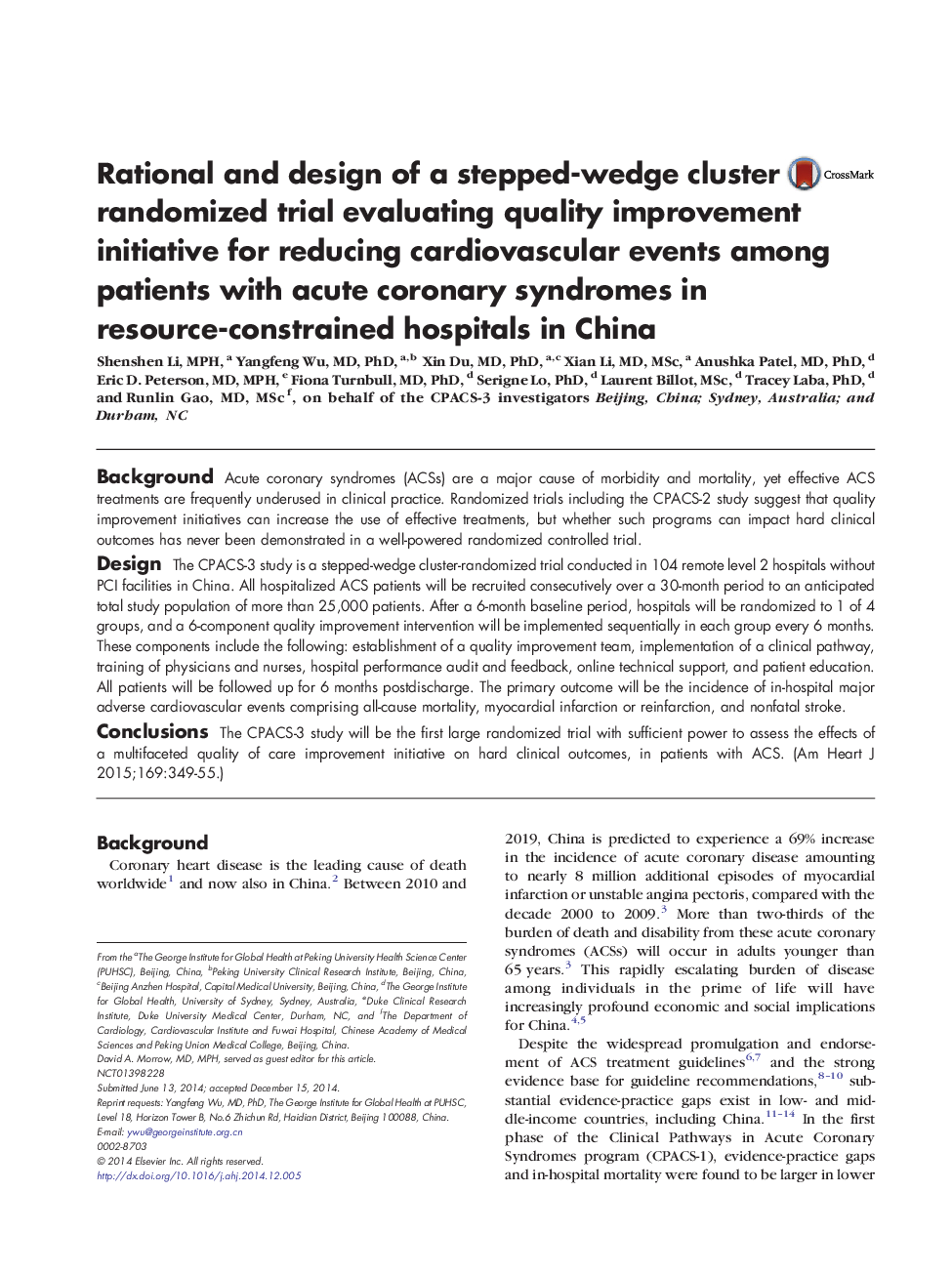| Article ID | Journal | Published Year | Pages | File Type |
|---|---|---|---|---|
| 2849899 | American Heart Journal | 2015 | 7 Pages |
BackgroundAcute coronary syndromes (ACSs) are a major cause of morbidity and mortality, yet effective ACS treatments are frequently underused in clinical practice. Randomized trials including the CPACS-2 study suggest that quality improvement initiatives can increase the use of effective treatments, but whether such programs can impact hard clinical outcomes has never been demonstrated in a well-powered randomized controlled trial.DesignThe CPACS-3 study is a stepped-wedge cluster-randomized trial conducted in 104 remote level 2 hospitals without PCI facilities in China. All hospitalized ACS patients will be recruited consecutively over a 30-month period to an anticipated total study population of more than 25,000 patients. After a 6-month baseline period, hospitals will be randomized to 1 of 4 groups, and a 6-component quality improvement intervention will be implemented sequentially in each group every 6 months. These components include the following: establishment of a quality improvement team, implementation of a clinical pathway, training of physicians and nurses, hospital performance audit and feedback, online technical support, and patient education. All patients will be followed up for 6 months postdischarge. The primary outcome will be the incidence of in-hospital major adverse cardiovascular events comprising all-cause mortality, myocardial infarction or reinfarction, and nonfatal stroke.ConclusionsThe CPACS-3 study will be the first large randomized trial with sufficient power to assess the effects of a multifaceted quality of care improvement initiative on hard clinical outcomes, in patients with ACS.
